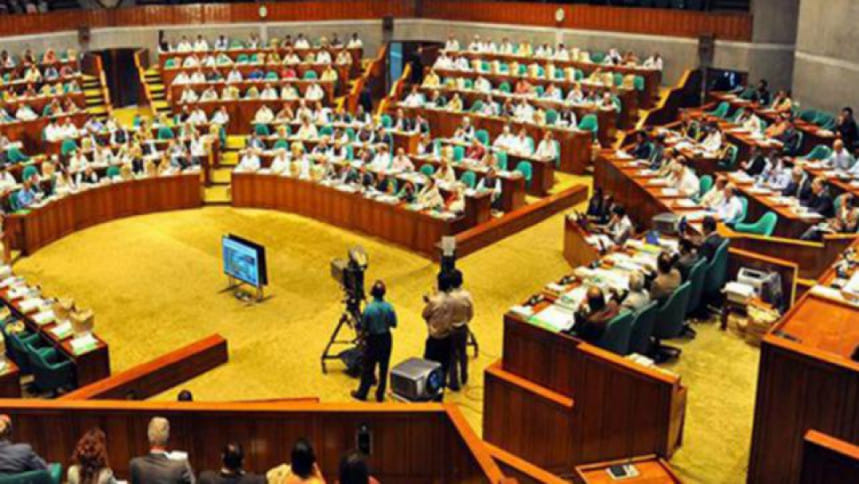JS passes labour law, concerns unaddressed

"Bangladesh Labour (Amendment) Bill-2023" was passed in parliament yesterday without the changes demanded by labour rights leaders.
It was done at a time when the readymade garments sector in the country is already in a volatile state.
An amendment to the law in accordance with international labour standards was one of the prerequisites for getting trade benefits for developing countries offered by trading blocs like the European Union.
The rights leaders alleged their consent was not taken before the bill was placed in parliament, even though discussions among all stakeholders have been going on since 2021.
A Tripartite Labour Law Review Committee, comprised of worker representatives, manufacturers and the government, has been working on this as per a roadmap set out by the International Labour Organization (ILO).
Union leaders had demanded the removal of the obstacles needed for forming and registering trade unions, but it went unheeded, they said.
"The amendments don't allow the workers in export processing zones [EPZs] to unionise. This was one of our demands," said Kalpona Akter, founder and executive director of the Bangladesh Centre for Worker Solidarity.
The labour leaders have also been asking for the removal of a provision that mandates that at least 20 percent workers from a factory's whole workforce must consent to the formation of a trade union.
They further asked for the removal of another provision that allows the auto-dismissal of any worker who is absent for 10 consecutive days.
Another demand was bringing the maternity leave in line with the international standard for six months. However, the new amendment increased the leave of 112 days by only eight days, making the entire leave only 120 days – around four months.
Labour leaders also asked the factories to ensure the workers' right to strike, which they claimed was overlooked.
EU Ambassador to Bangladesh Charles Whiteley, the European Parliament and European Commission, along with parts of the EU had said early last month that the EU will see whether Bangladesh's labour laws conform to international standards to provide preferential trade benefits under a proposed Generalised Scheme of Preferences (GSP) Plus – a special incentive for developing countries to pursue sustainable development and good governance.
Bangladesh is supposed to lose its current trader scheme of wholly duty-free trade access to the EU from 2029, when the country will graduate from a least-developed country to a developing country.
After 2029, Bangladesh has to be eligible for the much-needed GSP Plus.
Since 2001, Bangladesh exports duty-free to different EU countries under its Everything but Arms (EBA) scheme.
Around 50 percent of Bangladesh's export earnings come from the EU bloc.
At the US-Bangladesh Trade and Investment Cooperation Forum Agreement (Ticfa) Council held in Dhaka in mid-September, the US said that workers' rights, especially freedom of association and collective bargaining, are a top priority for the Biden-Harris administration.
It urged Bangladesh to allow freedom of association and collective bargaining in the EPZs.
Jatiya Party MPs yesterday in parliament raised their voices for protecting the rights of garments workers and increasing their monthly wages.
Participating in the discussion on the amendment bill, they said the country will not be stable if the workers are not in a pleasant situation.
JP MP Shameem Haider Patwary said some quarters argue that if garment workers' salaries are increased by a large margin, some factories may be forced to shut down.
"You [RMG factory owners] have been profiting for the past 25 years, but you can't take this risk for two years? They [the owners] already have 3-5 houses each and send their children abroad to study … Meanwhile, the price per unit should be increased through negotiations with foreign buyers."

 For all latest news, follow The Daily Star's Google News channel.
For all latest news, follow The Daily Star's Google News channel. 



Comments